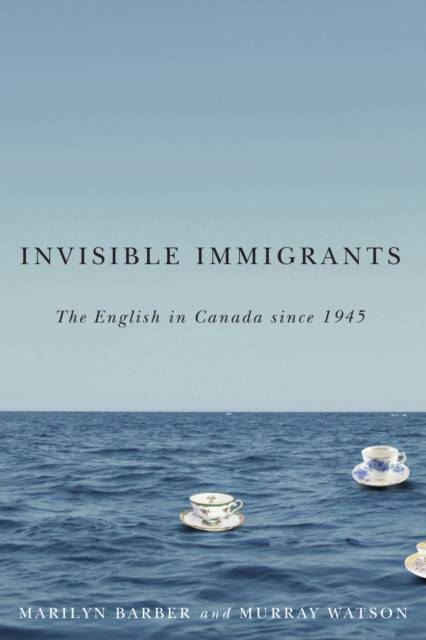
- Afhalen na 1 uur in een winkel met voorraad
- Gratis thuislevering in België vanaf € 30
- Ruim aanbod met 7 miljoen producten
- Afhalen na 1 uur in een winkel met voorraad
- Gratis thuislevering in België vanaf € 30
- Ruim aanbod met 7 miljoen producten
Zoeken
€ 44,95
+ 89 punten
Omschrijving
Despite being one of the largest immigrant groups contributing to the development of modern Canada, the story of the English has been all but untold. In Invisible Immigrants, Barber and Watson document the experiences of English-born immigrants who chose to come to Canada during England's last major wave of emigration between the 1940s and the 1970s. Engaging life story oral histories reveal the aspirations, adventures, occasional naïveté, and challenges of these hidden immigrants. Postwar English immigrants believed they were moving to a familiar British country. Instead, like other immigrants, they found they had to deal with separation from home and family while adapting to a new country, a new landscape, and a new culture. Although English immigrants did not appear visibly different from their new neighbours, as soon as they spoke, they were immediately identified as "foreign." Barber and Watson reveal the personal nature of the migration experience and how socio-economic structures, gender expectations, and marital status shaped possibilities and responses. In postwar North America dramatic changes in both technology and the formation of national identities influenced their new lives and helped shape their memories. Their stories contribute to our understanding of postwar immigration and fill a significant gap in the history of English migration to Canada.
Specificaties
Betrokkenen
- Auteur(s):
- Uitgeverij:
Inhoud
- Aantal bladzijden:
- 296
- Taal:
- Engels
- Reeks:
- Reeksnummer:
- nr. 12
Eigenschappen
- Productcode (EAN):
- 9780887557774
- Verschijningsdatum:
- 20/03/2015
- Uitvoering:
- Paperback
- Formaat:
- Trade paperback (VS)
- Afmetingen:
- 152 mm x 226 mm
- Gewicht:
- 408 g

Alleen bij Standaard Boekhandel
+ 89 punten op je klantenkaart van Standaard Boekhandel
Beoordelingen
We publiceren alleen reviews die voldoen aan de voorwaarden voor reviews. Bekijk onze voorwaarden voor reviews.












